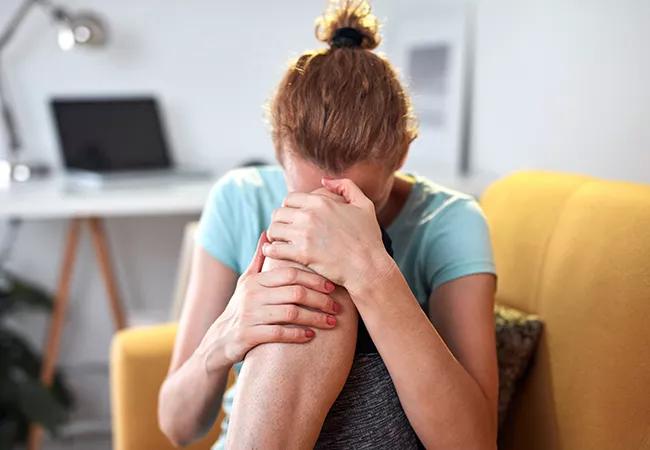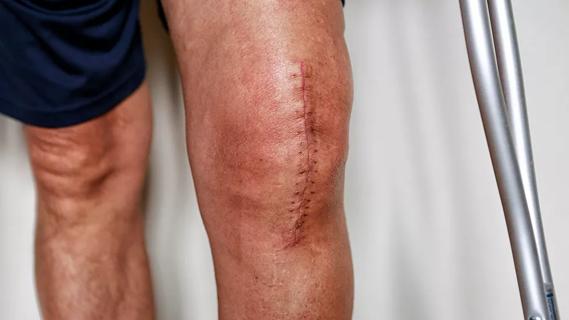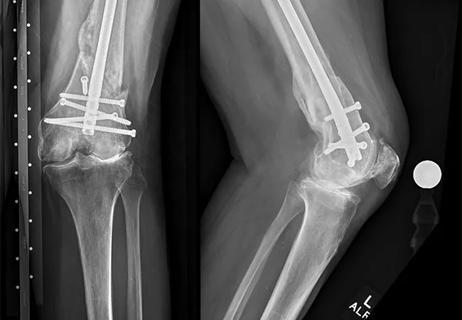Patients who score lower than 40 on the VR-12 Mental Component Summary need more care after surgery

Poor mental health has long been linked with adverse outcomes of total knee arthroplasty. A new study by Cleveland Clinic has quantified it, showing that patients who scored lower than 40 on the Veterans RAND 12-Item Health Survey (VR-12) Mental Component Summary (MCS) before surgery required more healthcare after surgery.
Advertisement
Cleveland Clinic is a non-profit academic medical center. Advertising on our site helps support our mission. We do not endorse non-Cleveland Clinic products or services. Policy
“The finding itself is not surprising, but our study is the first to objectively measure the association and present mental health as an independent driver of healthcare use after total knee surgery,” says the study’s senior author, Nicolas S. Piuzzi, MD, Director of Adult Joint Reconstruction Research in Cleveland Clinic’s Department of Orthopaedic Surgery. “Psychological disorders, including depression and anxiety, are difficult to measure. We know that qualitatively they can affect postoperative outcomes. Now we have identified a quantifiable way to assess that risk.”
This objective measure could help guide providers when to address mental health as part of medical optimization for surgery, he adds.
Dr. Piuzzi’s research team also recently quantified the link between preoperative narcotics use and outcomes of total knee arthroplasty, using the NarxCare overdose risk score. A NarxCare score of 300 or higher before surgery doubles the risk of a longer hospital stay and nonhome discharge after knee surgery.
In the mental health study, published in The Journal of Arthroplasty, researchers reviewed data from more than 5,000 patients who had primary elective total knee arthroplasty at Cleveland Clinic between 2016 and 2019. After surgery, patients with preoperative VR-12 MCS scores between 20 and 39 were more likely to have a:
However, they were not more likely to have a 90-day readmission or reoperation.
Advertisement
One year after knee surgery, patients with lower preoperative VR-12 MCS scores reported worse outcomes:
On the other hand, one year after surgery, patients with preoperative VR-12 MCS scores higher than 60 were more likely to:
These findings correlate with findings from the Piuzzi team’s separate study linking worse patient-reported presurgical pain, function and mental health with poorer outcomes of total knee arthroplasty.
“That study showed a connection between mental health and outcomes, while this mental health study focused on revealing measurable, actionable data,” says Dr. Piuzzi. “We believe that a VR-12 MCS score of 40 or lower identifies increased risk of poor surgical outcome, which should be addressed with these patients.”
Referral for mental health assessment and intervention may help reduce the risk, he notes.
“Psychological counseling and cognitive behavioral therapy may be just as important as other types of medical optimization for total knee arthroplasty,” he concludes.
Advertisement
Advertisement

Self-care may be just as effective for some patients

Most return to the same sport at the same level of intensity

More report a clinically meaningful change in function at 90 days compared to patients with lower BMI

How to diagnose and treat crystalline arthropathy after knee replacement

Special glasses allowed surgeon to see 3D models and anatomic data superimposed on surgical field

When procedure is performed by high-volume surgeons, outcomes are comparable to total knee replacement

Study findings warrant caution in patients at risk for DVT, cardiovascular issues and more

Robot assistance turns two-stage surgery into a single procedure